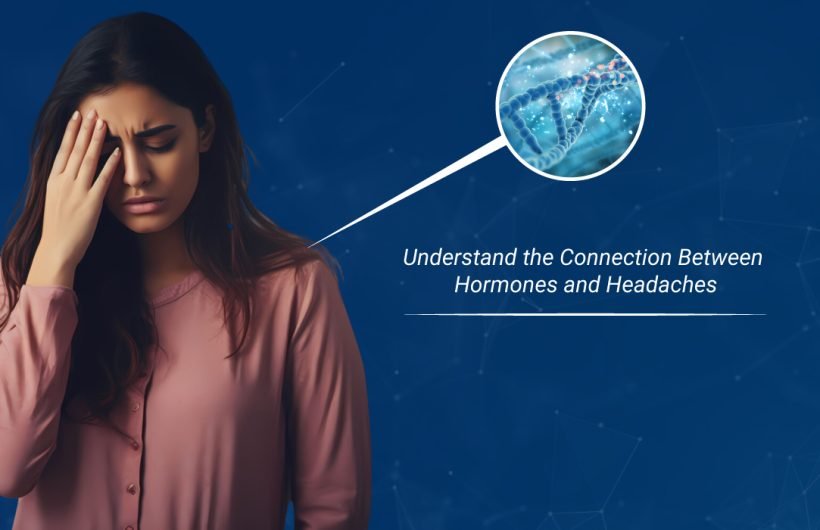Hormones are like messengers in our body, sending signals to different parts to keep everything running smoothly. But sometimes, these hormones can also be the culprits behind those pesky headaches that seem to pop up at the most inconvenient times. In this article, we’ll explore the connection between hormones and headaches, understand how hormonal changes can trigger headaches, and learn about ways to find relief.
What are Hormonal Headaches?
Hormonal headaches are headaches that are linked to hormonal fluctuations in the body. These fluctuations can be caused by various factors such as menstrual cycles, pregnancy, menopause, or the use of hormonal contraceptives. Many people, especially women, experience hormonal headaches at some point in their lives.
Understanding the Link between Hormones and Headaches
- Menstrual Headaches: One of the most common types of hormonal headaches is the menstrual headache, which occurs in a woman’s menstrual cycle. These headaches often occur just before, during, or after menstruation and are believed to be triggered by the drop in estrogen levels.
- Hormonal Migraines: Some people experience hormonal migraines, which are severe headaches that are often accompanied by other symptoms such as nausea, vomiting, and sensitivity to light and sound. These migraines are closely tied to hormonal fluctuations and can be particularly challenging to manage.
- Pregnancy and Menopause: Hormonal changes during pregnancy and menopause can also lead to headaches for many women. The surge and subsequent drop in hormone levels during these times can trigger headaches, adding to the discomfort already associated with these life stages.
Hormonal Headache Relief
- Managing Menstrual Headaches: For those experiencing menstrual headaches, several strategies can help alleviate the pain. Over-the-counter pain relievers, such as ibuprofen or aspirin, can be effective for some. Additionally, maintaining a regular sleep schedule, managing stress, and staying hydrated may also help reduce the frequency and intensity of menstrual headaches.
- Hormonal Migraine Management: Hormonal migraines can be particularly challenging to manage, but there are options available for hormonal headache relief. Some individuals find relief through specific medications designed to prevent migraines, while others may benefit from lifestyle changes, such as identifying and avoiding triggers like certain foods or environmental factors.
- Pregnancy and Menopause Support: During pregnancy, it’s essential to consult with a healthcare provider before taking any medications for headaches. They can guide safe options for managing headaches during this time. For menopausal headaches, hormone replacement therapy or other medications may be recommended to help balance hormone levels and reduce headache frequency.
Hormonal Headaches Treatment
- Medical Intervention: In some cases, hormonal headache treatment may require medical intervention. This could involve the use of prescription medications specifically designed to target hormonal headaches or underlying hormonal imbalances. It’s important to work closely with a healthcare provider to determine the most appropriate treatment plan.
- Alternative Therapies: Some individuals find relief from hormonal headaches through alternative therapies such as acupuncture, massage, or biofeedback. These approaches focus on addressing the body’s natural balance and may offer relief for some individuals experiencing hormonal headaches.
- Lifestyle Modifications: Making certain lifestyle modifications can also play a significant role in managing hormonal headaches. This may include maintaining a regular sleep schedule, engaging in regular physical activity, managing stress through relaxation techniques, and adopting a healthy diet.
Conclusion
Hormonal headaches can be a challenging and sometimes debilitating experience for many individuals, particularly women. By understanding the connection between hormones and headaches, identifying triggers, and exploring various management and treatment options, individuals can work towards finding relief and improving their overall quality of life.
If you are looking for specialized care and close attention to your treatment and progress, you may want to get in touch with Dr. Moxit Shah. As an esteemed Endocrinologist, he focuses on diagnosing and treating health issues associated with hormones and different forms of diabetes. Dr. Shah is particularly skilled in effectively handling diabetes caused by steroids, offering thorough care and assistance.






